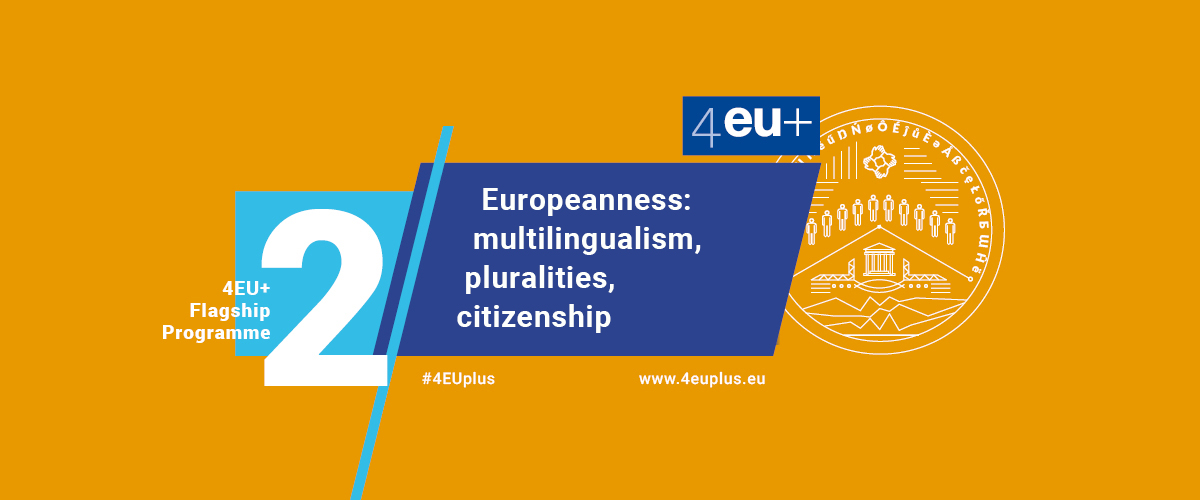The 4EU+ European University Alliance brings together seven comprehensive, research-intensive, public universities from four regions of Europe to strengthen the European vision of deepened cooperation and mutual enrichment by developing a new quality of cooperation in teaching, education, research and administration, leading to the creation of a truly integrated European University System.
The Rectors of seven partner universities—Charles, Heidelberg and Sorbonne Universities, and the Universities of Copenhagen , Geneva, Milan and Warsaw—have come together to establish a shared, seamless infrastructure, which will bring together professors, researchers, students and staff from six institutions.
The 4EU+ European University Alliance has one vision: to create a new quality of cooperation in teaching, education, research and administration. The cooperation is based on a common understanding of the idea of the European university that builds on academic freedom and autonomy and ensures fair access and participation in education.
You can read more information about the alliance, its full Mission statement (ca 20 pages), facts and figures and more about its projects here. Its mission is divided in 4 Flagships with different thematic focus, which organically helps to lead different disciplines to concrete aims. The objective is to gather networks of scholars and students under the Flagships. You can read more about the Flagships, watch videos dedicated to each of them and browse through the already existing networks here.
How does our project correspond with the 4EU+ mission?
The Decolonisation Challenge project accords with Flagship 2 of the 4EU+ project entitled “Europeanness: multilingualism, pluralities, citizenship”, which aims to strengthen positive integrative approaches at European universities in a changing world. Our objective is to endeavour to better understand European identity in complex relationships. Together with the allied universities, we want to question how European identity has been shaped and what mission stands before it today. Reflecting on language use and integrating a vocabulary proposed by postcolonial theory is also an integral part of the decolonisation discourse. By (un)comparing our (non)national specifics, we can uncover patterns that need to be thought over.

Flagship 2 brings together scholars from various disciplines in the field of the Humanities, with the aim of providing a comprehensive understanding of the concept of Europeanness”. This umbrella term is used to cover both institutional and grassroots perspectives as well as collective and individual facets of living in Europe and being European. Deriving from this definition, Flagship 2 covers two general lines:
- The governance/regulatory aspects of Europeanness (e.g., politics, economics, law), and
- The multitude of factors that contribute to European self-identification (e.g. Social Sciences/Psychology, Linguistics, Cultural Studies).
The questions to be considered are: How can Europeanness in this double sense be characterized at present? What are the roots of Europeanness and how were they established? What predictions can be made about its future development, given the rapidly changing world we are living in? The combination of different perspectives and the use of different methodologies, all inherently linked to the disciplines represented in the Flagship, enables a scientifically solid and holistic understanding of Europe as a non-physical entity. Europe is an inherently complex human-made construct that has an undeniable integrative potential. A better understanding and communication of European commonalities and diversities will help overcome ever re-surfacing sources of conflicts inside Europe, as well as between Europe and the world.
Flagship 2 activities are organized in and around several already existing networks that have specific topics and agendas, with new initiatives encouraged and expected during the 4EU+ activities. The networks provide the basis for educational programs set up to disseminate expert knowledge and state-of-the-art methods in the Humanities.
European citizenship is understood as both a legal and philosophical term, referring to a “Weltanschauung”. Respective research questions and educational programs place the focus on the tension between the rights that European citizens are benefitting from and the burden of responsibilities regarding the union and the community. At the same time, the goal is to understand what is the sense of belonging and other collective ideas (e.g., ‘collective memories’) in Europe and how this can be objectively identified by using innovative methods (e.g. Big Data).
Multilingualism, at a very general level, concerns the ability of Europeans to express and communicate their ideas, beliefs, and convictions with one another. More specifically, this is a phenomenon concerning both the individual and societal level. Many individuals acquire and speak multiple languages while speakers of different languages live side-by-side in one society. At the level of individuals, the most important research questions concern how multiple languages are acquired, and how a second/third language is taught best. At the level of the society, research questions concern the prestige of one or more specific languages over one or more others as well as similarities and differences in discourse and communication patterns in and across the European languages.
The great potential of the educational and research activities Flagship 2 has to offer lies in the multi-facetted approach, which not only encompasses distinctive combinations of disciplines and methodologies, but also the specific traditions and perspectives immanent to each of the six European universities – here united as equal partners in the 4EU+ Alliance.
